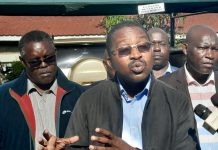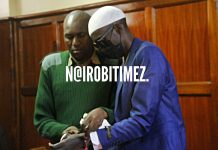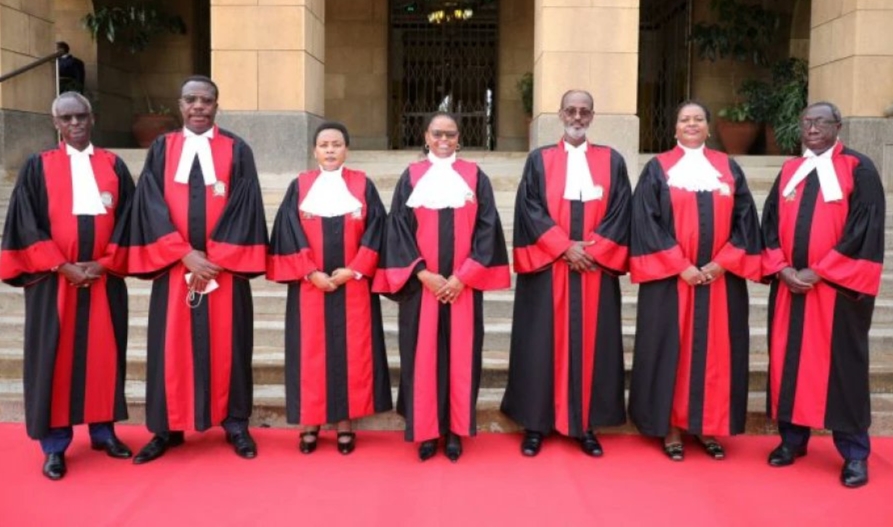
BY SAM ALFAN.
Kenya’s Supreme Court is ready to handle the third presidential election petition in the history of the country.
That is if Azimio Presidential candidate Raila Odinga makes good to his threat and moves to the top court to challenge the declaration of William Ruto as the president-elect of the just concluded general election.
Odinga has already rejected the results as announced by the chairman of the Independent Electoral and Boundaries Commission (IEBC) Wafula Chebukati on Monday.
If the matter is lodged, it would be the third petition to be filed at the apex court since 2013, all of them involving Odinga who has been claiming that his victory has been ‘stolen’.
The first case was dismissed by a bench presided by Chief Justice Willy Mutunga, who ruled that there was no sufficient evidence to void the victory of President Kenyatta and Ruto.
The second petition filed after the 2017 general election was successful after the court faulted the electoral body for irregularities, the bench which was led by Chief Justice David Maraga said affected the final outcome of the results.
Odinga, however, boycotted the fresh election as directed by the Supreme Court after some demands he had made to the electoral body were not met.
Seven Supreme Court Judges expected to hear the petition include Chief Justice Martha Koome, Deputy Chief Justice Philomena Mwilu, Justice Smoking Wanjala, Justice Isaac Lenaola, Justice Mohammed Ibrahim, Justice William Ouko and Njoki Ndung’u.
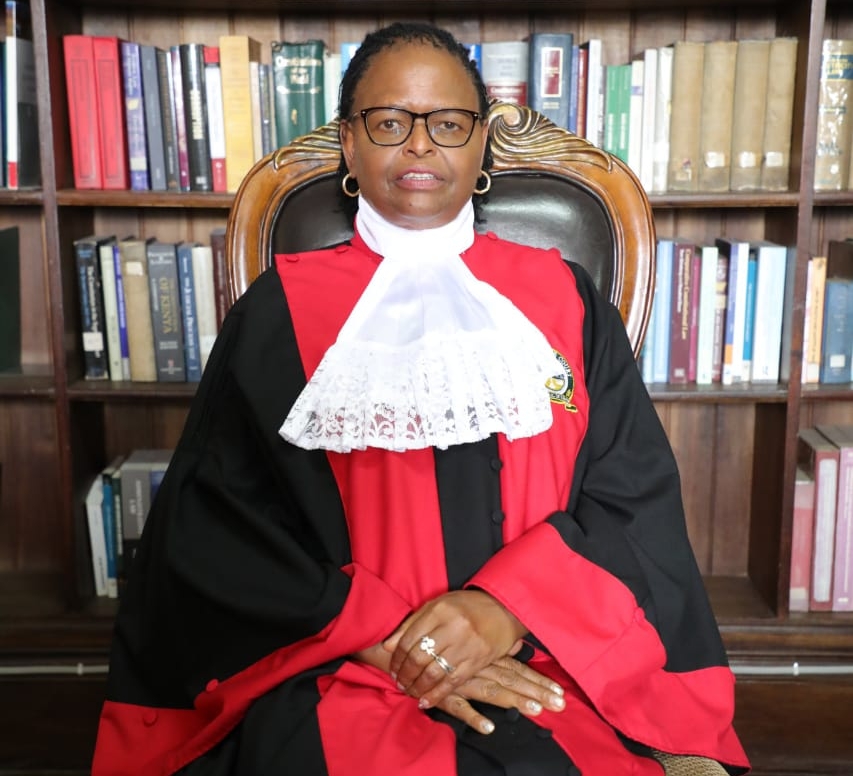
Chief Justice and Supreme Court President Martha Koome was appointed by President Kenyatta in May last year after competitive interviews.
Before her appointment as Chief Justice, Koome was a judge of the Court of Appeal Judge. And before that, she had served as a Judge of the High Court for eight years and practiced law for 15 years.
She holds an LL.B. from the University of Nairobi and an LL.M in Public International Law from the University of London.
She began her legal career in private practice in 1988 as a legal associate at Mathenge and Muchemi Advocates until 1993, where she succeeded in running one of the most successful women law firms at the time. After 1993, she opened her own law firm, Martha Koome & Co Advocates, and became the managing partner until 2003.
In 1993, she was elected as a council member of the Law Society of Kenya (LSK) until 1996. Koome has also served as the Chairperson of the Kenya Magistrates and Judges Association.
In private practice, CJ distinguished herself as a defender of Human Rights concentrating specifically on Gender Rights. She represented political detainees and persons charged with politically instigated offences during the volatile period of one-party rule.
The CJ has 33 years’ experience both as a legal practitioner and a Judge of the High Court and as Judge of The Court of Appeal.
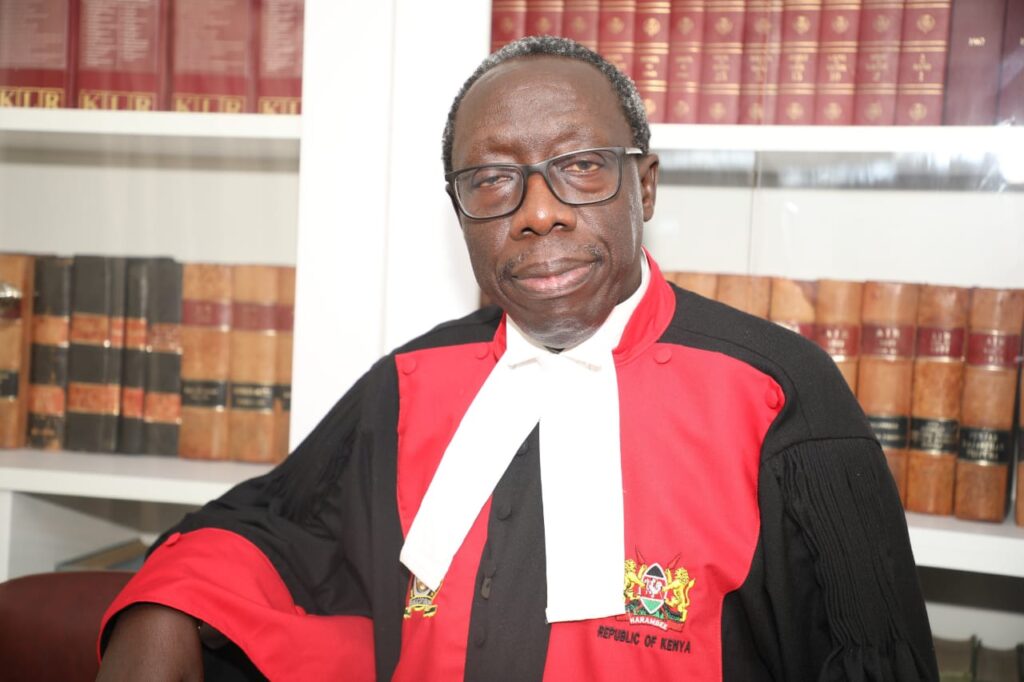
Supreme Court Justice William Ouko has a wealth of experience in judicial and administrative service spanning over 34 years.
He holds a Bachelor of Laws Degree from The University of Nairobi, a Diploma in Legal Practice from KSL and Master’s degree in Criminology and Criminal Justice.
He joined the judicial service in 1987 as District Magistrate II rising to become a Deputy Registrar of the High Court in 1989. Later in 1997, he was promoted to serve as the first Chief Court Administrator of the Judiciary.
He was appointed as a Judge of the High Court in 2004 & served in Malindi, Meru& Nakuru High Courts. He was appointed as a Court of Appeal Judge, in 2012 and on 9March 9, 2018 he was elected by his colleagues as President of the Court of Appeal where he served until June 11, 2021.
On May 5 2021, JSC nominated him for a seat at the Supreme Court of Kenya after competitive interviews. On May 14, 2021, he was appointed to the position by the President Kenyatta. On May 21, 2021 Justice Ouko was sworn in as a Judge of the Supreme Court of Kenya.

Deputy Chief Justice Philomena Mwilu was appointed a Judge in 2007. Mwilu first served in the Commercial Division of the High Court in Nairobi and later the High Court in Eldoret.
She was later transferred to Nairobi where she served at the Criminal Division and subsequently headed the Environment and Land Division of the High Court. In November 2012, following a competitive selection process, Justice Mwilu was elevated to the Court of Appeal where she served as a Judge of Appeal until her appointment as the Deputy Chief Justice, on October 28, 2016. On May 3, 2017 she was elected by her colleague judges of the Supreme Court to represent them as a Commissioner at the Judicial Service Commission.
Upon appointment by the the Chief Justice, Deputy Chief Justice Mwilu also serves as the Judiciary Ombudsman and the Chair of the Implementation Monitoring Committee of the Sustaining Judiciary Transformation (SJT): A Service Delivery Agenda 2017.
She has over 33 years’ experience in the legal profession and holds a Bachelor of Laws (LLB) degree and a Masters of Law degree from the University of Nairobi. She was admitted as an advocate of the High Court of Kenya in 1984.
She was in private legal practice in various law firms in Nairobi for the first seven years following her admission to the Bar.
Thereafter she ventured into the corporate world working as a Senior Legal Officer in insurance Board Secretary in charge of the day-to-day running of a State Corporation in regulation; the Deputy Chairperson of the Energy Tribunal and later as Director on the Board of the Nairobi Water and Sewerage Company before being appointed a Judge in 2007.
She has served various capacity before joining the judiciary.
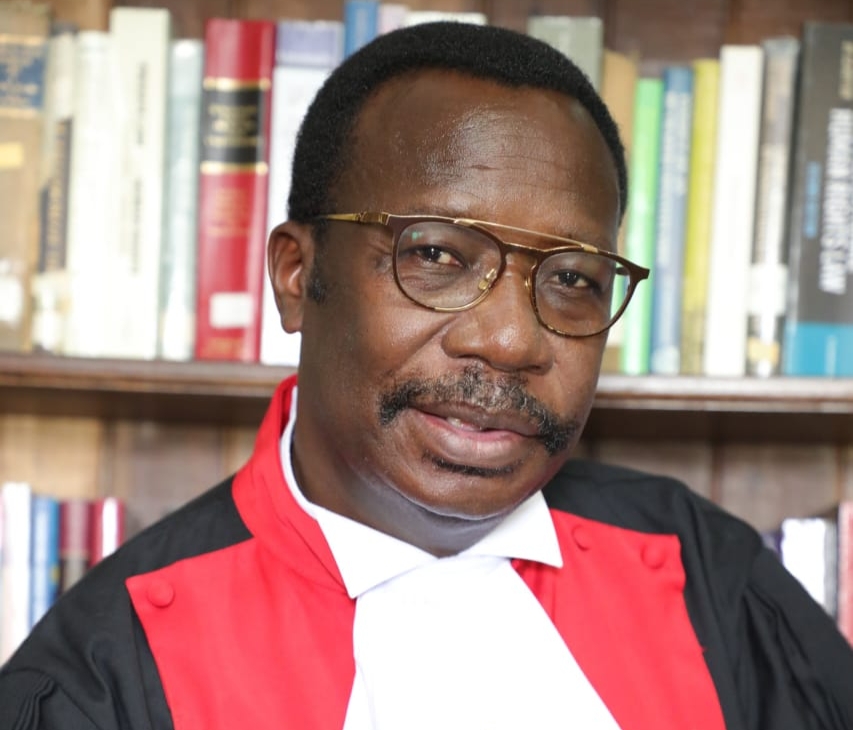
Justice Wanjala is a holder of a Bachelor of Laws (LL.B, Hons.) from the University of Nairobi, a Diploma in Law from the Kenya School of Law, a Master of Laws (LL.M) from Columbia University, New York and a Doctorate in Law (PhD) from the University of Ghent, Belgium.
Before his appointment to the Supreme Court of Kenya, Justice Wanjala had been a Law Lecturer at the University of Nairobi for 20 years (1986-2004) where he offered instruction in diverse areas of law including, Land Law, International Law, Human Rights Law, Criminal Law and Law of the Sea.
He was appointed as Assistant Director of the defunct Kenya Anti-Corruption Commission (KACC), in October 2004 where he served in that capacity until 2009.
While still lecturing at the University of Nairobi, he was appointed by President Kibaki to serve as the Joint Secretary to the Commission on illegally and irregularly acquired Public Land (the Ndung’u Commission) in 2003.
Judge Wanjala was actively involved in the struggle for Constitutional Reform in Kenya especially during his time in Civil Society in the 1990’s.
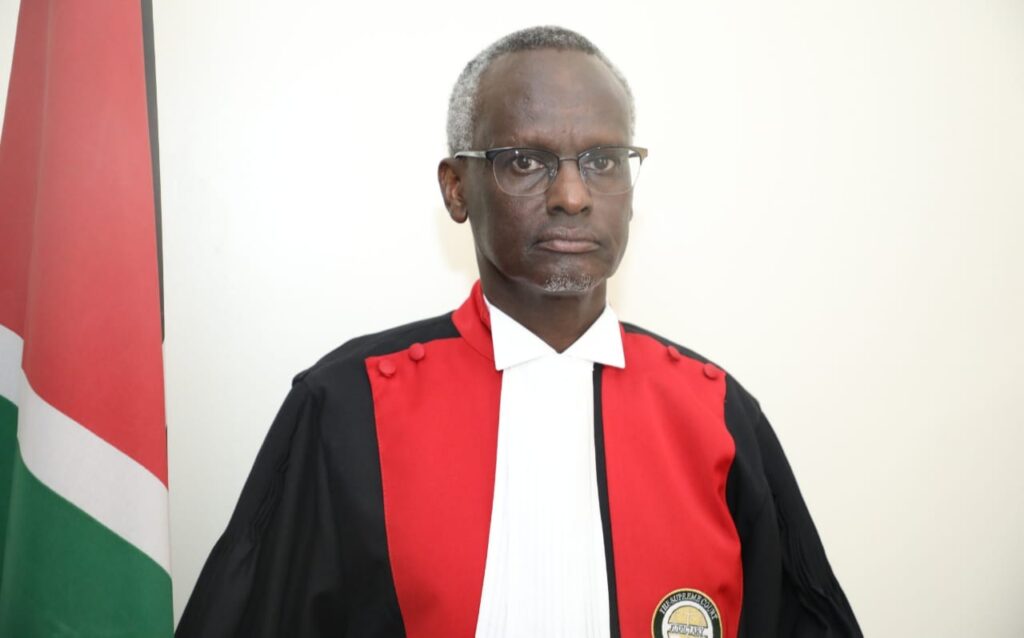
Supreme Court Judge Isaac Lenaola is an alumnus of the University of Nairobi and Kenya School Law. He practiced law in Nairobi specializing in Commercial Law and Land Law and served as a Commissioner both at the PCK and at CKRC.
He also served as a member of the Tribunal Investigating the conduct of Judges. He joined judicial service in 2003 and worked as Resident Judge in Embu, Meru, Machakos and Kakamega High Courts.
He also served as a Commissioner at Judicial Service Commission. He was previously a Member of the Board, Judiciary Training Institute (now known as Kenya Judiciary Academy and Chair of Kenya Magistrate and Judges Association (KMJA) and Treasurer of the EAMJA.
Until his appointment as Judge of the Supreme Court, He was the Presiding Judge of the Constitutional and Human Rights Division at the High Court in Milimani, Nairobi where he rendered illuminating and ground-breaking decisions on human rights, devolution, and separation of powers.
In all the stations he served outside Nairobi, he is reputed for diligence, hard work and has on many occasions been cited as an example in the best of case management and backlog clearance.
Justice Lenaola has served as Judge and Deputy Principal Judge of the Court of First Instance of the East African Court of Justice (EACJ) from 2011 to 2018 and as a Judge at the Residual Special Court for Sierra Leone (RSCL) from 2013 to-date.
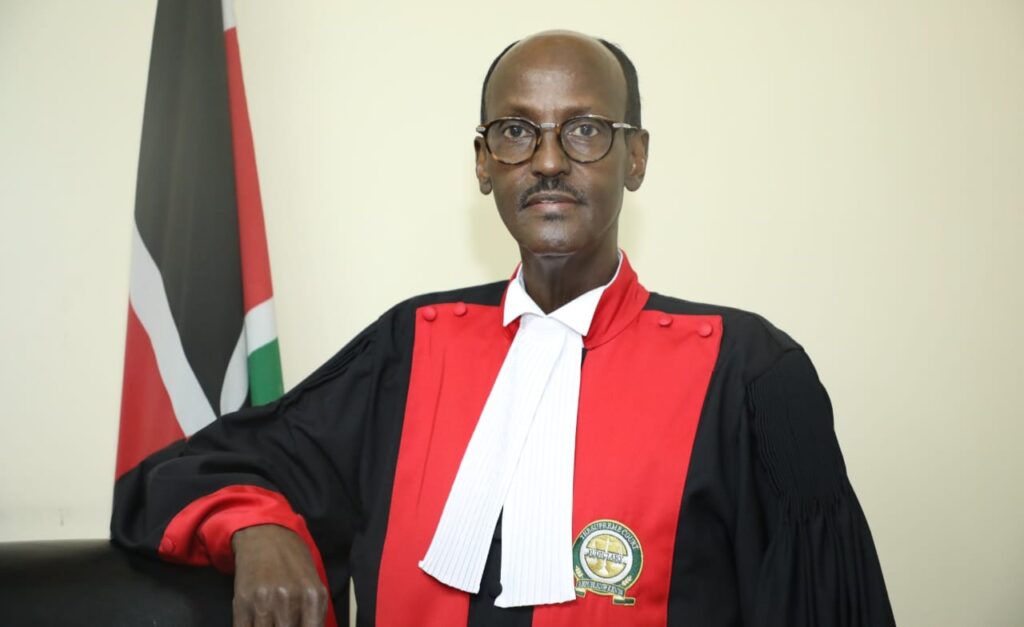
Justice Mohammed Ibrahim was appointed a judge of the Supreme Court of Kenya on June 16, 2011 after an open and competitive interview. Until then, Justice Ibrahim had been a High Court Judge since his appointment on May 22, 2003, serving in Eldoret, Nairobi and Mombasa.
He has Bachelor of Laws degree from the University of Nairobi and was admitted to the Roll of Advocates on the January 11, 1983. He practiced law at Messrs Waruhiu & Muite Advocates, where he was admitted as a partner in 1985.
In 1994, he established Mohammed Ibrahim & Associates, which subsequently expanded to become Ibrahim & Isaack Advocates in 1997. He has served as a council member of the Law Society of Kenya and a board member of a non-governmental organisation, Legal Education and Aid Programme (LEAD).
Justice Ibrahim was also actively involved in civil rights advocacy at the advent of the pro-democracy movement in Kenya and was detained without trial in 1990.
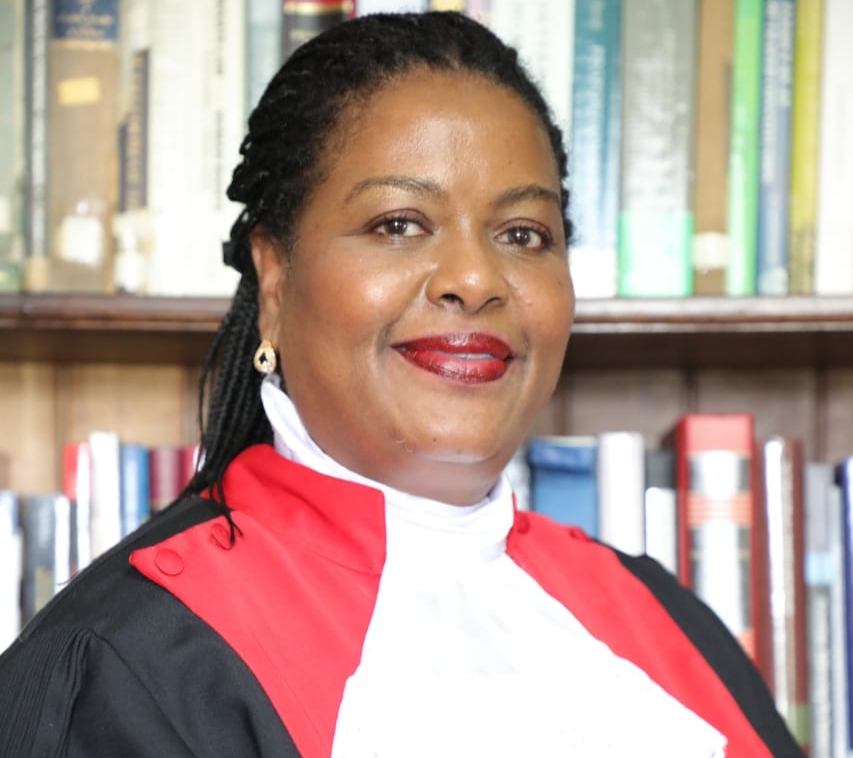
Supreme Court Justice Njoki Ndung’u. She is a former Member of the Pan-African Parliament and of the 9th Parliament in the National Assembly of Kenya, where she sat in the Standing Committees on Defense and Foreign Affairs; Administration of Justice and Legal Affairs; and the Parliamentary Select Committee on the Constitution.
She holds both a Masters in Law degree (LL.M) in Human Rights and civil liberties and a diploma in Women’s Rights.
Justice Ndungu sat as a member of the Committee of Experts that drafted the Kenyan Constitution and has received international and national recognition for her work. She was awarded the UN Person of the Year in Kenya 2006 and the International Commission of Jurists – Jurist of the Year Award 2006.


